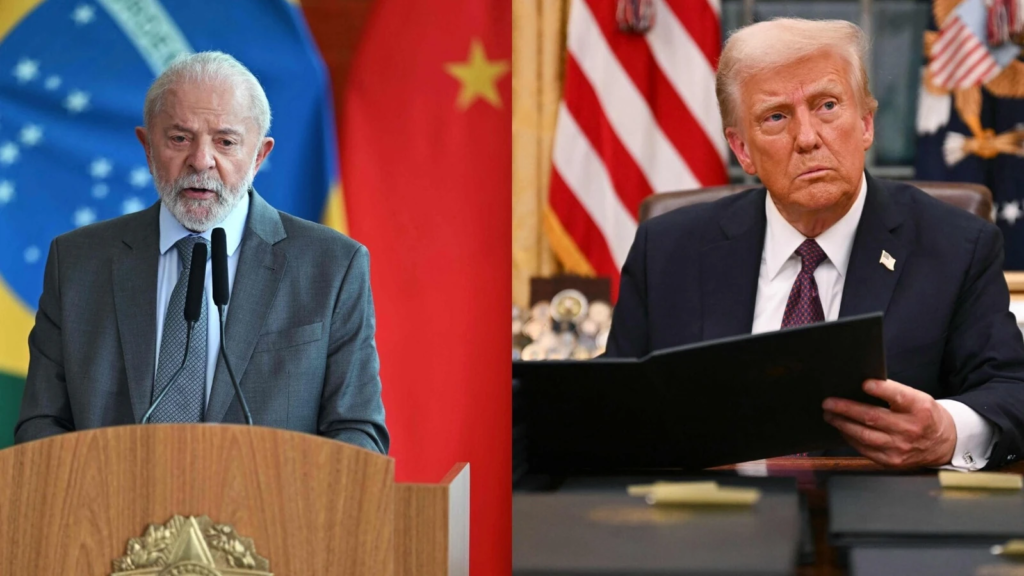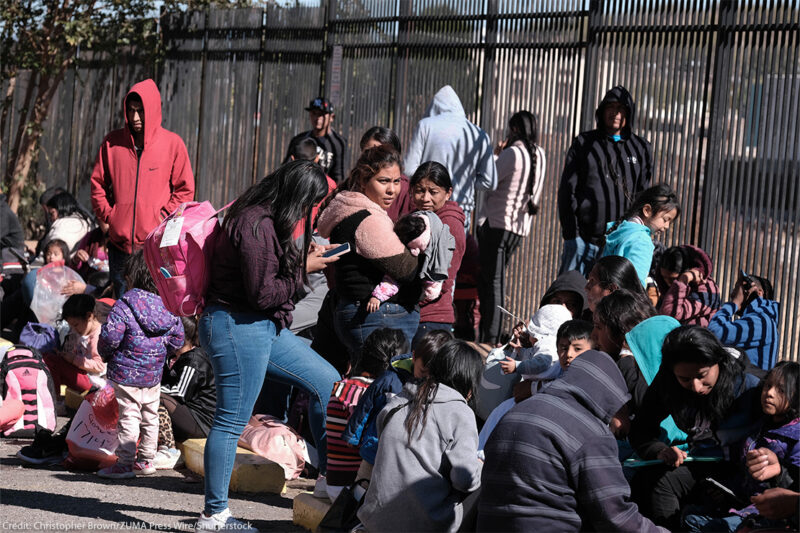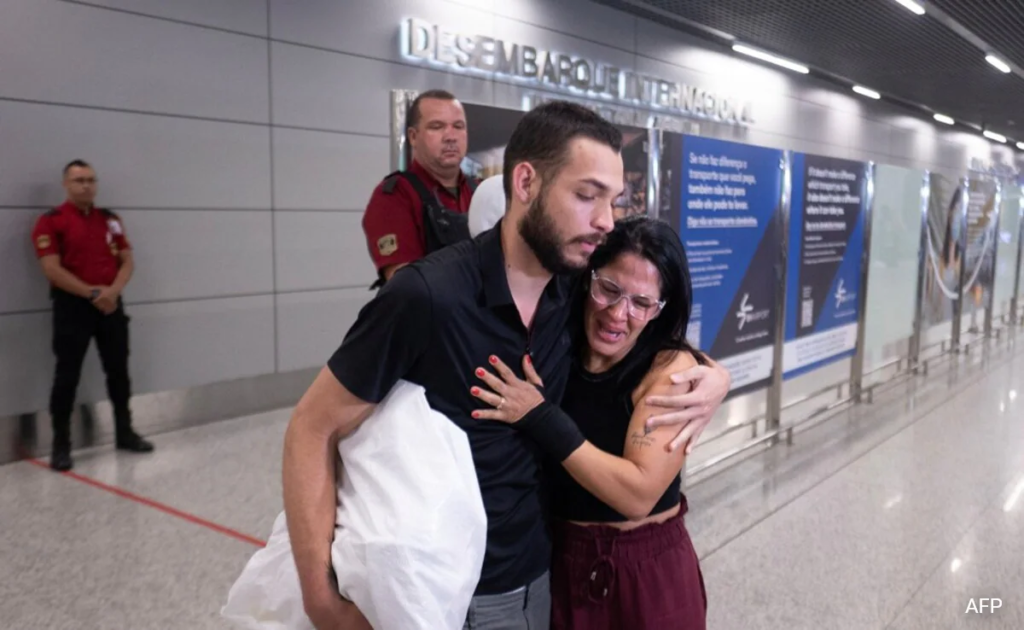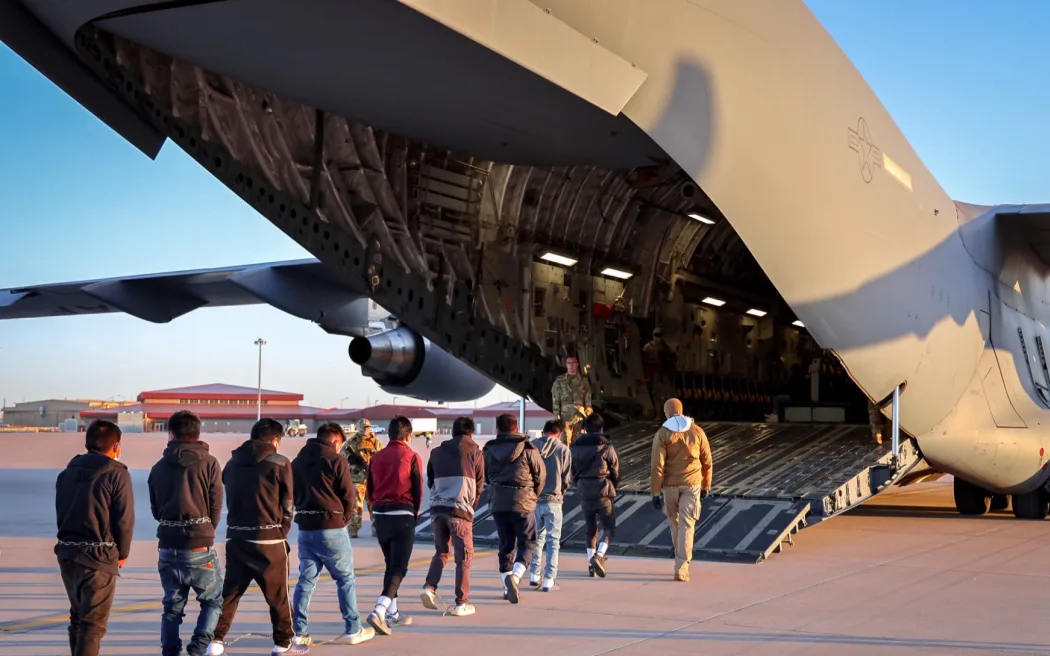The return of Brazilian Immigrants Deported from the US under controversial circumstances has sparked a diplomatic dispute between the two nations.
The arrival of deportees in handcuffs, coupled with allegations of mistreatment during their journey, has drawn sharp criticism from Brazil’s government, which sees these actions as a blatant violation of human rights.
This incident has reignited global discussions about immigration policies and the treatment of undocumented migrants, particularly in the context of Donald Trump’s hardline stance on immigration during his second term as President of the United States.
Brazilian Immigrants Deported from the US in Handcuffs
The arrival of 88 deported Brazilian immigrants in the northern city of Manaus on a US charter flight has put a spotlight on the Trump administration’s handling of deportations. Witnesses reported that many passengers were bound in handcuffs throughout the flight and deprived of basic necessities such as water.
Some passengers fainted due to the extreme heat, adding to the controversy. According to Brazilian officials, these actions not only violated the dignity of the deportees but also contradicted the bilateral agreements in place between Brazil and the United States.
Brazil’s justice minister, Ricardo Lewandowski, condemned the treatment of its citizens, describing it as a “flagrant disregard for fundamental human rights.” He informed President Luiz Inácio Lula da Silva of the situation, prompting swift government action.
President Lula directed that a Brazilian Air Force aircraft be deployed to transport the deportees safely to their final destinations, ensuring their journey continued with dignity.
Read : Bizarre Fish with Human-Like Teeth Found in Brazil
The foreign ministry also announced its intention to formally demand explanations from the United States regarding the degrading conditions experienced by passengers aboard the flight.
Read : The world’s largest snake has been found dead in the Brazilian Amazon Rainforest
While the US government has not issued an official statement on the incident, the situation has strained relations between the two countries. Deportation flights are not new, and similar operations were conducted under previous administrations.
However, this incident’s specific circumstances have amplified concerns about human rights violations, raising questions about how international agreements are being implemented.
Trump’s Immigration Crackdown and Latin America’s Response
The controversy in Brazil coincides with a broader shift in US immigration policy under Donald Trump’s second term as president. Upon returning to the White House, Trump implemented sweeping executive actions aimed at tightening immigration laws and accelerating deportations.
Declaring a “national emergency” at the southern US border, he authorized the deployment of additional military personnel to secure the region and promised to intensify efforts to deport undocumented migrants, especially those with criminal records.

Since these policies were reinstated, several deportation flights have drawn criticism, not just in Brazil but also in other countries across Latin America. Guatemala, for example, recently received a repatriation flight carrying deportees on military aircraft, marking a departure from previous protocols.
Critics argue that such measures, particularly the use of military assets for deportations, symbolize an aggressive and militarized approach to immigration enforcement. This has heightened tensions between the United States and its southern neighbors, many of whom are already grappling with their own socio-economic challenges.
Brazil’s foreign ministry expressed its discontent over the deportation process, emphasizing the need for humane treatment and compliance with international norms.
The deportees, many of whom voluntarily agreed to return to Brazil, were reportedly treated in a manner unbefitting their legal status. This situation underscores the need for clearer communication and respect for human rights in bilateral agreements governing immigration.
The Broader Implications for Migration Policies
The plight of the Brazilian deportees highlights the broader complexities surrounding global migration policies and the treatment of undocumented immigrants. With an estimated 11 million undocumented migrants currently residing in the United States, the debate over immigration enforcement remains deeply polarized.
Proponents of stricter immigration controls argue that such measures are necessary to safeguard national security and maintain legal order. Opponents, however, emphasize the humanitarian consequences of such policies, particularly when they result in the mistreatment of vulnerable individuals.

In the case of the Brazilian deportees, the allegations of mistreatment during their return journey have fueled public outrage. Reports of passengers being handcuffed and restrained during the flight, as well as being denied basic necessities like water, paint a grim picture of the deportation process. For many, these actions represent not just a failure of policy but also a disregard for human dignity.
Brazil’s demand for an explanation from the United States reflects its broader commitment to protecting the rights of its citizens, regardless of their legal status abroad. It also raises important questions about accountability in international relations.
How should countries balance the enforcement of immigration laws with their obligations to uphold human rights? And what mechanisms are in place to ensure that deportation agreements are implemented fairly and transparently?
As the international community watches this situation unfold, there is an urgent need for dialogue and cooperation. Addressing the root causes of migration—such as poverty, violence, and political instability—requires a coordinated effort among nations. At the same time, governments must ensure that their immigration policies are aligned with the principles of justice and humanity.
The deportation of Brazilian immigrants in handcuffs has sparked a significant diplomatic rift between Brazil and the United States, highlighting the challenges of managing migration in a humane and just manner.

As Brazil demands answers and the global community grapples with similar issues, the incident serves as a stark reminder of the importance of protecting human rights in all aspects of immigration policy.
The case also underscores the need for greater transparency and accountability in bilateral agreements governing deportation. For countries like Brazil, ensuring the dignity and safety of their citizens abroad remains a top priority.
For the United States, balancing the enforcement of immigration laws with respect for human rights will be critical in maintaining its relationships with neighboring nations.
The unfolding controversy may ultimately serve as a catalyst for broader discussions about the ethics and effectiveness of current immigration policies, not only in the United States but also across the globe. As nations work to address these complex challenges, the principles of dignity, respect, and cooperation must remain at the forefront.

